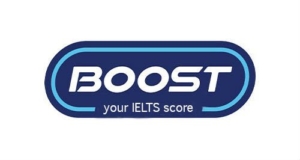IELTS writing task 2 business topics

ielts writing task 2 business topics
Some people believe that the government should regulate businesses more strictly to prevent unethical practices, while others believe that businesses should have more freedom to operate without government intervention. Discuss both views and give your own opinion.
| Arguments in favour of strict government regulation | Arguments in favour of business freedom |
| Protecting Consumers:
Argument: Strict government regulation is necessary to protect consumers from unethical business practices. Explanation: Without regulations, businesses might exploit consumers through false advertising, unsafe products, or predatory pricing. Development: For instance, regulations in the food and drug industries help ensure that products are safe for consumption. This can prevent incidents like food poisoning from contaminated products, which can harm public health and erode trust in businesses. |
Economic Growth:
Argument: Greater business freedom leads to increased economic growth and innovation. Explanation: Less regulation reduces bureaucratic red tape, allowing businesses to operate more efficiently and respond quickly to market changes. Development: In business-friendly environments, companies can launch new products and services more quickly. This can lead to job creation and economic prosperity, as seen in rapidly growing economies with fewer regulations. |
| Environmental Protection:
Argument: Government regulation is essential to ensure businesses operate in an environmentally responsible manner. Explanation: Businesses might prioritize profit over environmental sustainability, leading to pollution and depletion of natural resources. Development: Regulations on emissions and waste disposal can significantly reduce pollution. For example, laws that limit industrial emissions help keep air and water clean, benefiting public health and the environment. |
Cost Reduction:
Argument: Less government intervention reduces compliance costs for businesses. Explanation: Regulatory compliance can be expensive and time-consuming, diverting resources from productive activities. Development: Small businesses, in particular, benefit from fewer regulations as it lowers their operating costs. This allows them to invest more in expansion and hiring, which boosts the overall economy. |
| Ensuring Fair Competition:
Argument: Regulations are crucial to maintaining fair competition and preventing monopolies. Explanation: Without oversight, large corporations could engage in anti-competitive practices, driving smaller businesses out of the market. Development: Antitrust laws prevent monopolies and ensure that no single company dominates the market. This encourages innovation and ensures that consumers have access to a variety of products and services. |
Encouraging Self-Regulation:
Argument: Businesses can effectively self-regulate through industry standards and corporate social responsibility (CSR) initiatives. Explanation: Many businesses recognize that ethical practices and sustainability are beneficial for their reputation and long-term success. Development: Companies that adopt CSR initiatives often see improved customer loyalty and brand reputation. This shows that businesses can commit to ethical practices on their own, without needing strict government oversight. |
Art ielts writing task 2 ideas
Many businesses are moving towards more flexible work arrangements. Do the advantages of flexible work arrangements outweigh the disadvantages for businesses and workers?

ielts writing task 2 business and money
| Advantages of Flexible Work Arrangements for Businesses | Disadvantages of Flexible Work Arrangements for Workers |
| Increased Productivity
Argument: Flexible work arrangements can significantly boost employee productivity. Reason: Flexible work arrangements often lead to increased employee satisfaction and morale, which can enhance productivity. Example: Many companies report higher productivity levels when employees have the flexibility to choose their work environment. Result: Higher productivity levels can lead to greater output and efficiency, ultimately boosting the company’s bottom line. |
Lack of Clear Boundaries
Argument: Flexible work arrangements can blur the boundaries between work and personal life. Reason: Working from home or having flexible hours can blur the lines between work and personal life, making it difficult for employees to separate the two. Example: Employees might find themselves working outside of regular hours, leading to burnout. Result: This lack of clear boundaries can negatively impact mental health and overall well-being, reducing job satisfaction and productivity in the long run. |
| Cost Savings
Argument: Implementing flexible work arrangements can lead to substantial cost savings for businesses. Reason: Allowing employees to work remotely can reduce the need for physical office space and associated overhead costs such as utilities and office supplies. Example: Companies often see significant savings in operational expenses when they reduce their office space requirements. Result: These cost savings can be reinvested into other areas of the business, such as research and development or employee benefits, further driving growth and innovation. |
Isolation and Reduced Team Collaboration
Argument: Flexible work arrangements can lead to feelings of isolation and reduced team collaboration. Reason: Remote work can lead to feelings of isolation and detachment from the team, as employees miss out on face-to-face interactions and spontaneous conversations. Example: Workers often feel less connected to their colleagues and may miss the social aspects of an office environment. Result: This can impact teamwork and collaboration, potentially leading to a decrease in innovation and a weaker company culture. |
| Attracting and Retaining Talent
Argument: Offering flexible work arrangements helps businesses attract and retain top talent. Reason: Offering flexible work arrangements can make a company more attractive to potential employees, particularly those who value work-life balance. Example: Many businesses find that flexible work options help them attract and retain skilled workers who might otherwise seek employment elsewhere. Result: This can lead to lower turnover rates and the ability to attract top talent, ensuring a competitive edge in the market. |
Challenges in Career Advancement
Argument: Flexible work arrangements can pose challenges to career advancement for employees. Reason: Employees working remotely or with flexible hours may have fewer opportunities for networking and visibility within the company, which can affect their career progression. Example: Remote workers might miss out on important meetings or informal interactions with management that could lead to promotions. Result: This can lead to feelings of being overlooked and undervalued, which might cause talented employees to seek career growth opportunities elsewhere. |
Many businesses are increasingly using automation and artificial intelligence to improve efficiency and productivity. Do you think this is a positive or negative development for businesses and workers?
| Advantages of Automation and AI for Businesses |
Disadvantages of Automation and AI for Businesses |
| Increased Efficiency
Argument: Automation and AI significantly enhance operational efficiency. Reason: Automated systems and AI can handle repetitive tasks much faster and more accurately than humans. Example: Automated customer service chatbots can manage thousands of inquiries simultaneously, reducing wait times and increasing customer satisfaction. Result: This leads to streamlined processes, quicker turnaround times, and overall improved efficiency in business operations. |
High Initial Investment
Argument: Implementing automation and AI requires significant upfront costs. Reason: The development, installation, and maintenance of advanced automated systems and AI technologies can be expensive. Example: Small businesses might struggle to afford the high costs associated with purchasing and integrating AI software and hardware. Result: This financial barrier can be particularly challenging for smaller enterprises, potentially widening the gap between large and small businesses. |
| Cost Reduction
Argument: Implementing automation and AI can lead to substantial cost savings for businesses. Reason: Automation reduces the need for a large workforce to perform repetitive tasks, thus lowering labor costs. Example: Manufacturing companies using robotic assembly lines can reduce the number of employees needed on the floor, saving on salaries and benefits. Result: These cost savings can be reinvested into other areas of the business, such as research and development or marketing, to drive further growth. |
Job Displacement
Argument: Automation and AI can lead to job displacement and unemployment. Reason: As machines and AI systems take over tasks previously performed by humans, many jobs can become redundant. Example: In industries like manufacturing and customer service, many workers may find their roles automated, leading to significant job losses. Result: This can create economic and social challenges, as displaced workers may struggle to find new employment opportunities, leading to increased unemployment rates. |
| Enhanced Data Analysis and Decision Making
Argument: AI improves the quality of data analysis and business decision-making. Reason: AI systems can analyze vast amounts of data quickly and identify patterns or insights that humans might miss. Example: Retail businesses using AI for inventory management can predict stock needs more accurately, reducing waste and ensuring products are available when customers want them. Result: Better data analysis leads to more informed decision-making, helping businesses to optimize operations and strategically plan for the future. |
Dependency and Vulnerability
Argument: Over-reliance on automation and AI can make businesses vulnerable. Reason: Heavy dependence on automated systems and AI technologies can lead to operational risks if these systems fail or are compromised. Example: A cybersecurity breach or system malfunction in an automated process can disrupt business operations significantly. Result: Businesses may face severe operational disruptions and financial losses if they do not have adequate backup systems or contingency plans in place. |
Tham gia nhóm gia sư IELTS để luyện tiếng Anh nhé


